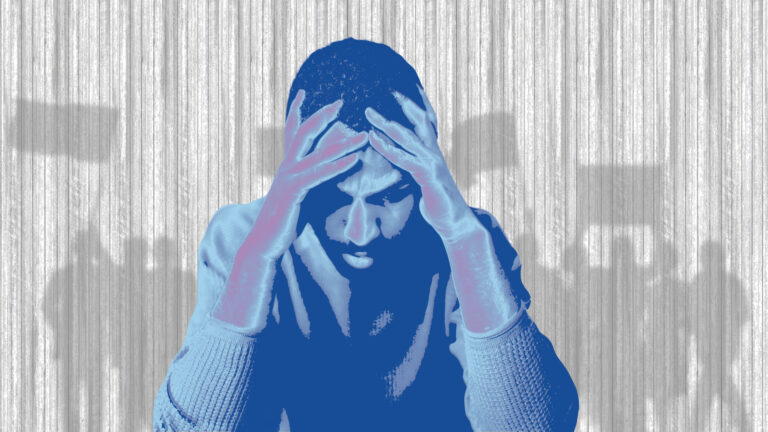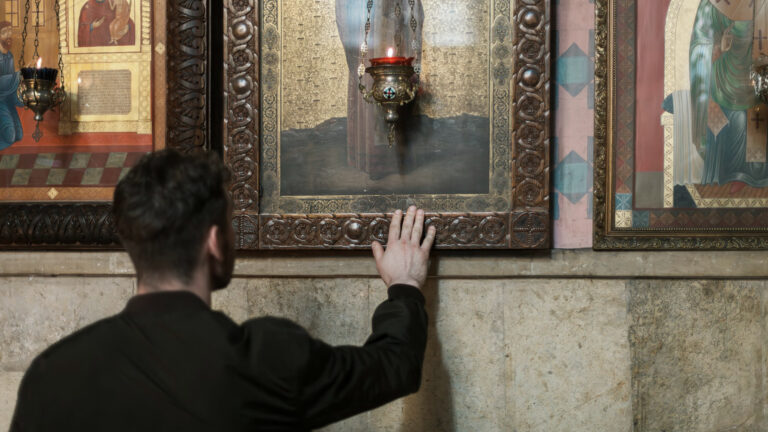Last month, I laid out four of the biggest challenges facing the church in the West. Polarization made that list, and in two recent articles (here and here), I’ve sought to unearth some of the reasons why our society has become increasingly fragmented, and to lay the groundwork for how the church might respond.
What is Fragmentation and What Does It Do?
Fragmentation, as defined by Charles Taylor, happens whenever “a people [are] increasingly less capable of forming a common purpose and carrying it out.” Here’s what he says:
“Fragmentation arises when people come to see themselves more and more atomistically, otherwise put, as less and less bound to their fellow citizens in common projects and allegiances. They may indeed feel linked in common projects with some others, but these come to be partial groupings rather than the whole society…”
When fragmentation arises, people turn inward to these “partial groupings.” They expend energy on their own causes and concerns, with little time or attention remaining for the larger goals of the wider society. As a result, common ground and common sense (literally, the sense we hold in common) shrink. No longer do we share a consensus. As the ground breaks up, people huddle together like penguins on an ice float that either collides with other floats or slowly drifts away.
Reacting to Fragmentation
Fragmentation elicits the feeling that one’s security is in jeopardy. The temptation, then, is to react, to do something (anything) that will re-establish equilibrium. For some, the reaction is to double down, to recommit to the group and its values. For others, the reaction is to rush without thought to another group, supposing that the enemy of an enemy is a friend.
Both of these responses are problematic. Doubling down may lead to a sense of security, but it comes at the expense of the group’s ability to hear and receive constructive critique. Jumping to another group may provide an initial sense of belonging, but the new group identity may smuggle in different assumptions and beliefs that compromise one’s values. The irony is that, to combat the feelings that come from fragmentation, we invest ourselves even more heavily in our particular group, which only exacerbates the problem we sensed in the first place.
Morality in Community
The groups we choose to identify with and invest in matter. Why? In part, because we form our moral intuitions within communities, not merely as individual minds reading books or interpreting the news.
Jonathan Haidt explains the power of the social element when we make moral judgments. Social influence matters. We care about what other people think, to the point we are willing to adjust our beliefs or look for justification for other perspectives in order to fall in line with what others are saying. “Other people exert a powerful force,” he writes, “able to make cruelty seem acceptable and altruism seem embarrassing, without giving us any reasons or arguments.”
Studies back up the idea that one’s group helps to shape an individual’s perspective. When people migrate from one party to another, they tend to shift their views over time until they fall in line with their party’s consensus. Someone with a moderate stance on gun ownership who gets involved with the Democratic Party is likely to shift toward supporting stricter gun control laws. Someone with a moderate stance on abortion who joins the Republicans will often move to a stronger pro-life position. The company we keep effects the moral sensibilities we have. Community matters.
Does the Church Stand Out?
Recognizing the reality of tribal impulses and reactionary tendencies alongside the communal aspect of moral formation ought to increase the priority we place on the church. After all, as Christians we believe that the church is essential for moral formation and that the followers of Jesus must transcend the political debates and divides of our day and bear witness to another King.
Unfortunately, too often our churches are as fragmented as the rest of society. We are complicit in the problem of polarization. People with evangelical beliefs today seem hopelessly fragmented, with distrust and disdain affecting our witness, to the point that partisan agreement often trumps creedal affirmation. On the one hand, we see religious right Christians who have doubled down in the Trump era. On the other hand, we see the reactionary response of fleeing toward other partisan affiliations, all of which carry their own set of temptations and dangers.
Theology and Politics
This fragmentation leads American Christians to conflate “conservative” politics and “conservative” theology, as if they must always go hand in hand, or to assume that “liberal” politics and “liberal” theology are always united. Our brothers and sisters in other parts of the world see the strangeness of that conflation better than we do. They wonder, for example, why the party that champions the marginalized and vulnerable is so radically committed to abortion rights. Or why the party that champions the sanctity and dignity of every human life elevates leaders who believe the regular use of torture is morally justifiable. The most conservative Christians in Denmark (some of whom have paid a social price for their orthodox beliefs on sexuality) scratch their heads at the antagonistic posture toward immigrants they see among many “conservative evangelicals.” Many of the most traditional of Eastern European evangelicals are puzzled by the “conservative evangelical” view of the death penalty or gun control.
Just last week, I heard from a missionary with extensive experience the UK who holds theologically conservative views on the authority and inerrancy of Scripture, the nature of salvation, and the historic Christian consensus on marriage and sexuality. Yet on the political spectrum, she would be considered by American standards to be “to the left” on a number of issues, including universal health-care coverage, matters related to racial equality, and so on. “It is important for American Christians to dig into our history more, and to stop equating liberal theology with liberal politics, because there are many of us around the world who do not equate the two,” she wrote.
Open Our Eyes
I am not saying that all Christians should be in total agreement on every ethical question or political platform. Neither am I saying that it is wrong for a Christian to belong to a political party. I mention this global perspective because we need to be better attuned to how our partisan affiliations have influenced and (perhaps) compromised our witness. This is a challenge for all Christians, whether they claim the political right or left. Why replace the celebration of gospel unity with the demand for political uniformity?
Oh how easy it is for Christians to walk away from the rock of Jesus’s teaching and build our houses on the shifting sands of political alliances, to be so caught up in culture wars we never realize the whole battle has taken a worldly shape and tone, and to overlook just how infected we are with the world’s way of thinking, categorizing, and grouping these issues. Francis Schaeffer was right when he said, “If Christians win a battle by using worldly means, they have really lost.”
The question now before us is, how do we extricate ourselves from this mess and begin to rebuild a church culture that can counter our society’s increasing fragmentation? More on that to come. . . .

















